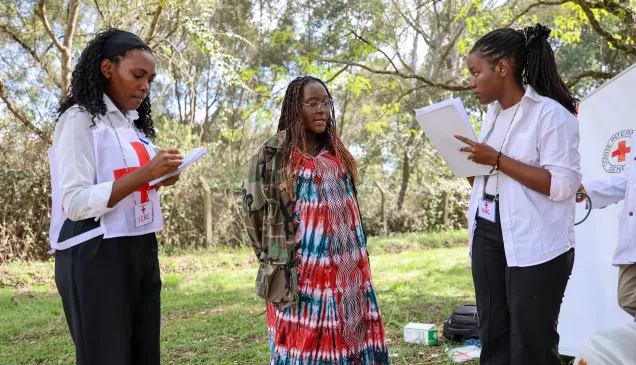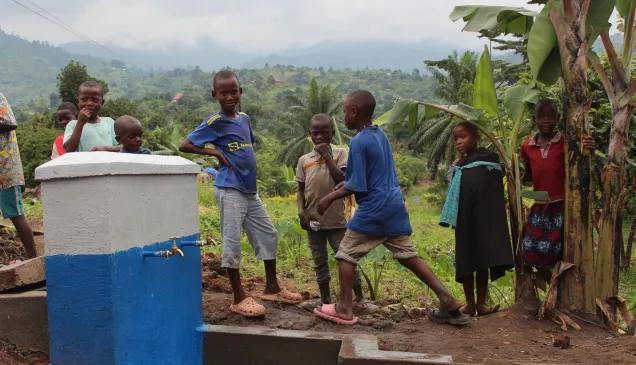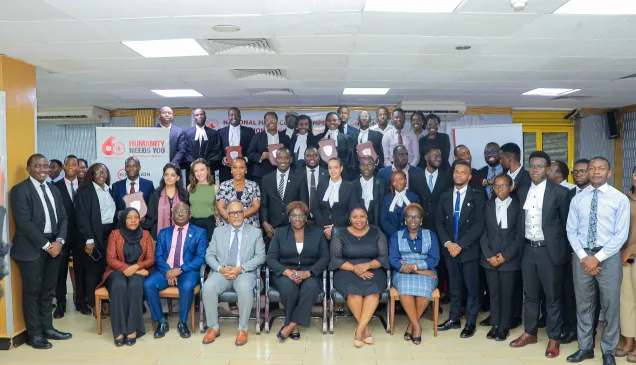Missing in Uganda: Holding on to hope
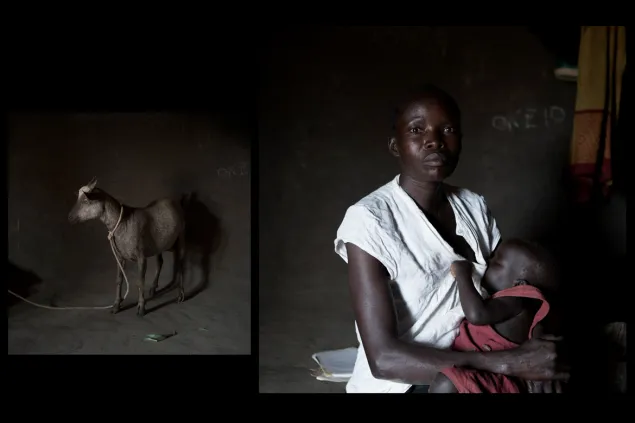
"In 2003, my 12 year-old son, Geoffrey Orenga, went missing. We have waited so long and now our hope of his ever returning is fading. This is his goat. I take care of her. Even when I have nothing to eat, I make sure she eats." Pawena Central Village, Lamwo District, Uganda.
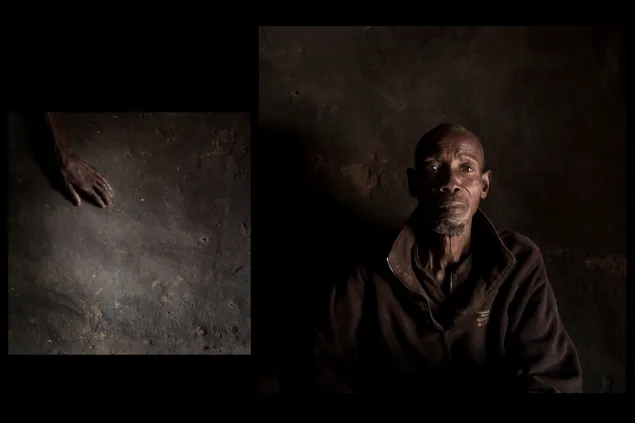
Amnon Abwaye, 73-year-old.
"My son Ventorino Oola, when he was around 20, went missing during the conflict in Northern Uganda. Many people came back but he has not, so I feel hopeless now. I need to know the truth, even if he is dead, because in our tradition it is important to have a funeral. The armed men burnt everything so nothing is left of him, just this house, which he built himself. I sleep in it and keep it in order. It reminds me of him." Kabete Village, Mukwini Subcounty, Kitgum District, North Uganda.
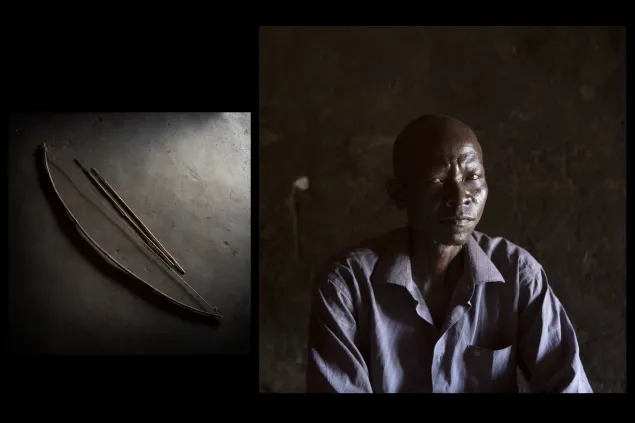
Francis Opira, 46-year-old.
"In 1997, my father was killed. In 2002, my brother David Ocen, 17, disappeared. I am waiting for him to come back. I only have this bow and arrow now. Ocen used to hunt wild animals with his bow. He was very good at it." Alimo Tiko Village, Palabek Pal Subcounty, Lamwo District, Uganda.
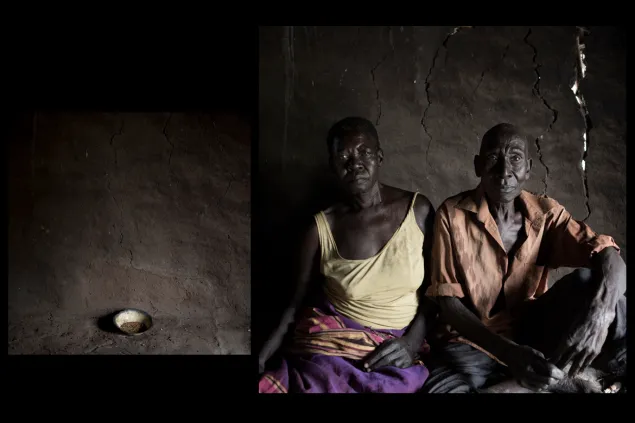
Martin and Victoria.
“We had four children. The first two, Okot and Odoch, went missing 20 years ago, while the other two died very young. We don’t have any hope of our children ever returning. They have been gone so long. We have nothing to remind us of them – they were too young to have any belongings. But whenever I see the misery my wife and I live in, I think of them because I know if they were here we wouldn’t be in such a state." Layamo Village, Palabek Gem Subcounty, Lamwo District, Uganda.
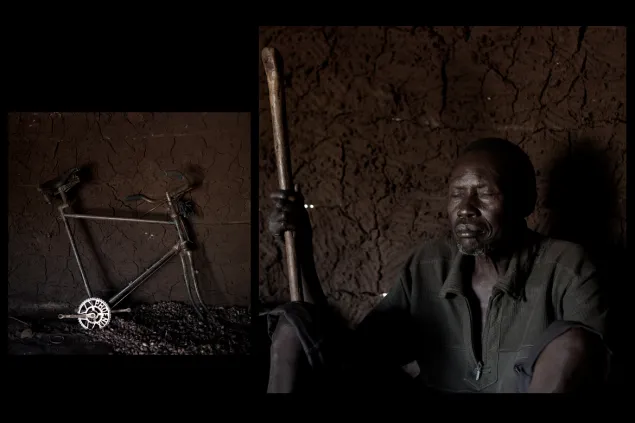
John Atoya, 71-year-old.
"One day, my son David, who was 27, took my bike and went to sell local brew in Kitgum town. Unfortunately, he never made it home from the market. At times, we think he is still alive. But if he was alive, he would have come back. The only things I kept of my son were his mattress, now used by some members of our family, and the remains of the bike that he was riding when he was abducted." Liri Village, Palabek Kal Subcounty, Lamwo District.
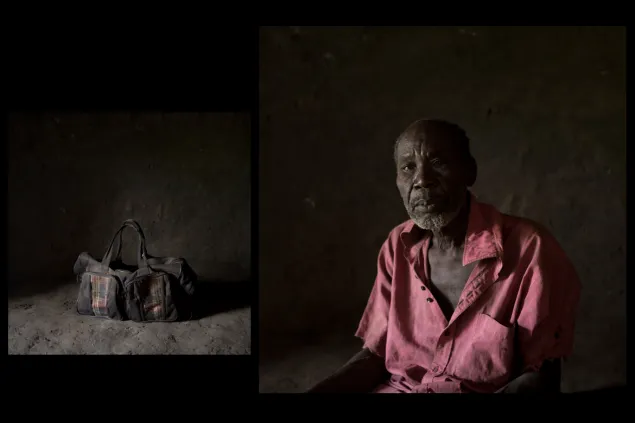
Justo Okot, 72-year-old.
"Charlie Olara, my son, was my first born. He went missing in 1998. I felt my heart bleed and everyone in my family felt sick. Even now, I have severe pain in my heart. I have not received any news of him since then. I don’t know if I can still hope or not. This bag is Charlie’s. I keep it in his memory. The day I’ll know he is dead, I’ll take it to my wife’s family and we’ll share the grief and bring back Charlie’s spirit to his home. Only then will we be able to use the bag again." Lamuku Village, Layamo Sub County, Kitgum District, North Uganda.
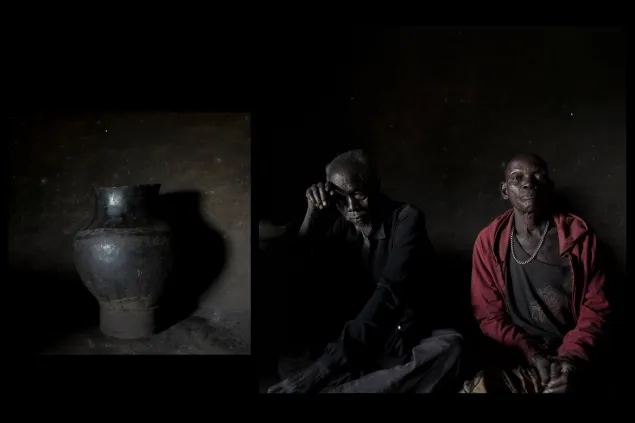
Odira Marco, 72-year-old.
"In 1995-96, I was living with my family in a village called Kampala, but the situation was very messy and unstable. One day, we sent our 14-year-old daughter Beatrice Lalam to the market to buy cassava. That day, we waited in vain for her to return home. My wife and I didn’t eat for seven days. I live with a bleeding heart. The only memory left of her is this pot. She used to make beer in it in order to pay her school fees." Akado village, Akwang Subcounty, Kitgum District, North Uganda.
When people go missing, it causes unimaginable pain for their families, communities and entire societies. While numbers are hard to quantify, more people are being reported missing than ever before. It is clear that this problem affects virtually every country in the world, and not just countries at war.
In Uganda, these families live with only the memories of their missing loved ones through the personal objects left behind. Most of them are still waiting for their loved ones to return or to have some form of closure. Finding out the fate of missing people is, therefore, first and foremost, an essential humanitarian act.

